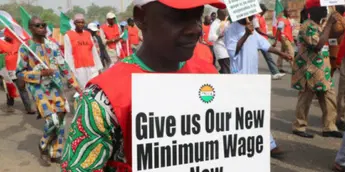OSOGBO – The National Forum of Heads of Federal Government Establishments in Nigeria (NAFOHEADS) has declared that the current N70,000 national minimum wage has lost its real value and is no longer sustainable for Nigerian workers.
Mr. Samuel Adekunle, the Chairman of NAFOHEADS in Osun State, made this assertion on Wednesday in Osogbo during an inter-denominational service held to mark the 2025 African Civil Service Week. Speaking to the News Agency of Nigeria (NAN) on the sidelines of the event, Adekunle emphasized that high inflation and the continuous increase in the cost of living have severely eroded the purchasing power of the minimum wage.
Workers’ Pain Deepens as Economic Realities Shift
Adekunle, who also serves as the Curator of the National Gallery of Arts, highlighted that workers’ struggles have intensified since the N70,000 minimum wage was signed into law by President Bola Tinubu in July 2024, with its implementation beginning in September of the same year. The rapid rise in inflation since then has significantly diminished its worth.
“The N70,000 minimum wage is not enough for workers in the country due to the escalation of cost of things in the country,” Adekunle stated, advocating for immediate government intervention. He urged the government to implement a higher national minimum wage that is truly reflective of the current economic realities, ensuring it can adequately meet the essential needs of workers.
Seeking Divine Intervention for Civil Service and National Development
Regarding the inter-denominational service, Adekunle explained that the event was organized to allow civil servants in the state to seek divine intervention for their welfare and for national development. The 2025 African Civil Service Week itself carried the theme: “Federal Civil Service and Sustainable Development in a developing Economy,” underscoring the critical role of the civil service in the nation’s progress amidst economic challenges.
This strong call from NAFOHEADS adds to the growing conversation about the need for a living wage in Nigeria, reflecting the widespread economic hardship faced by many across the country.


